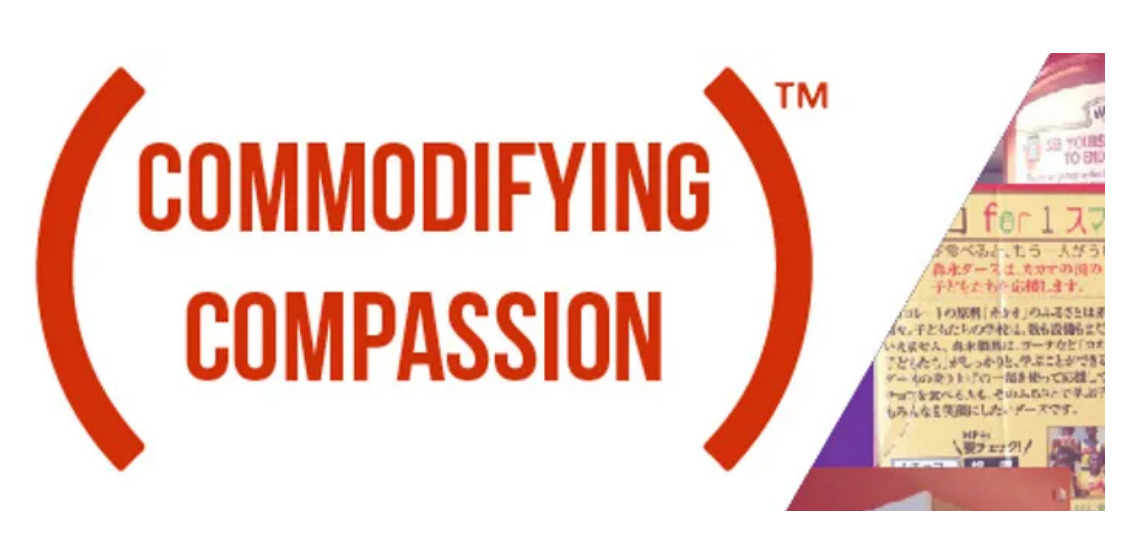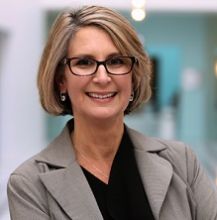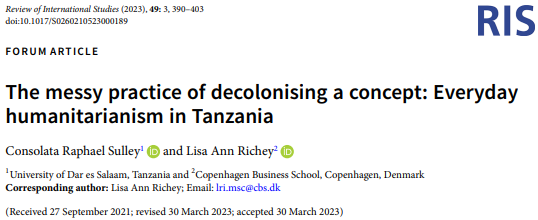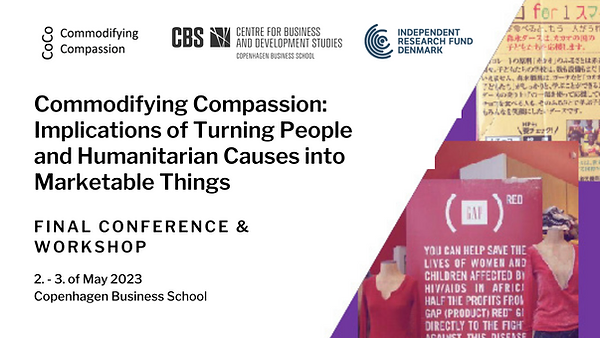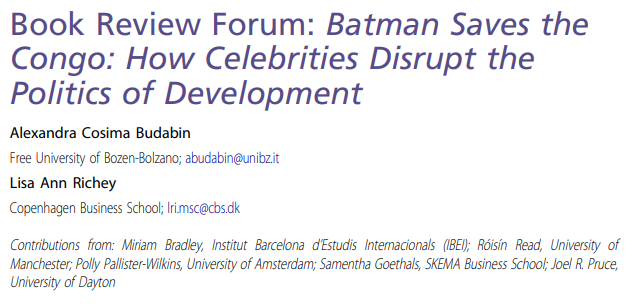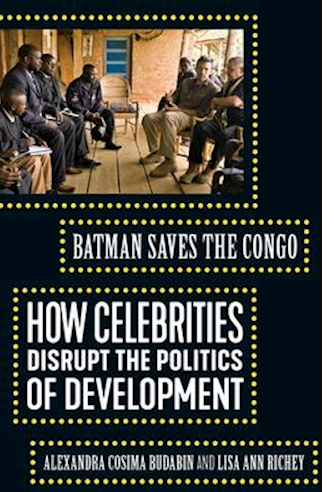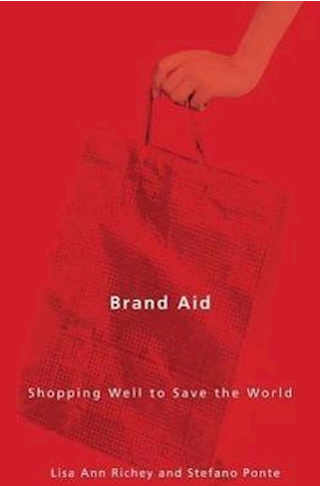Development is not what it used to be and neither is development research. Changes happened even faster during the years of the Covid-19 pandemic. A very experienced American fieldworker, professor at Copenhagen Business School Lisa Ann Richey, has been an active observer along the way.
”It’s the hard thing about Covid-19. We had never experienced such a pandemic before. We had to find creative ways to continue the South-North collaboration within our on-going research projects. We wanted to make certain that nobody in our team should be at any risk, neither from the South nor the North.”
Lisa Ann Richey is Professor of Globalization in the Centre for Business and Development Studies (CBDS) within the department of Management, Society and Communication at Copenhagen Business School (CBS). In many instances, the pandemic changed the rules for everything, and instead of doing regular fieldwork for her projects, she was stuck in Copenhagen.
”When the Danes were not allowed to travel for our safety, we all agreed that neither were the Tanzanian collaborators in our common research project, even though their own government had few or no restrictions. It wouldn’t have been fair that we were sitting safely in our rooms in Copenhagen while they were going out, putting themselves or other community members at risk to meet our research goals.”
Lisa Ann Richey admits that it was ”a difficult time with such sensitive questions. We wanted to make certain that nobody in our team got into trouble. So we had to develop new research methodologies to avoid putting anybody at risk. We had to be creative, which was a very useful and challenging process.”
The general theme of the research project is ”Everyday Humanitarianism”. 16 researchers from the South and North are participating. Suddenly, the pandemic itself became the focus of the research for a while. ”We were trying to find out what actually works to keep ourselves and others safe, and people’s reaction to their governments’ policies in both Denmark and Tanzania.”
Lisa Ann Richey has come far since she was a young law student from a liberal arts college in South Carolina in the U.S. She got an opportunity to go on a ”foreign study tour” to the Middle East and Africa, on which the visit to Kenya and Tanzania changed her life.
”I found the politics of decolonization and development aid absolutely fascinating. I found the struggle and intrigues between the former colonial powers, the East African leaders and among the new leaders eye-opening. They had to be viewed from a different lens than the American politics that I had been taught. Trying to understand the reason for this difference was really interesting for me”.
She then changed her studies and entered into a PhD course program in political science, but studying reproductive health and population politics in Tanzania. She quickly found out that ”the mainstream political science of that time didn’t have any answer to my questions”.
So she spent a lot of time doing fieldwork in Africa, learned swahili and worked for the UN. Since that time, she has spent more than 51 months in total doing fieldwork in African countries.
A fantastic place for future networks
”As young researchers, we were just surviving on very limited funding, but this way of life gave me a much closer understanding of how to survive in the place for a long time. I lived in a hostel in Dar es Salaam, the cheapest and safest place in the city, a fantastic place for future networks. I am still working together with many of the researchers from around the world who were staying at the same hostel.”
After finishing the PhD, she and her Italian colleague and husband, Stefano Ponte, moved around between positions in the U.S. and Denmark and did more fieldwork in Tanzania before settling in Denmark with their kids. First, she had a teaching position at the Center of African Studies at Copenhagen University and did research at the Center for Development Studies, before getting a full time job at what was then International Development Studies at Roskilde University (RUC).
Here she stayed in different positions for the next fifteen years. She was, among other things, a member of the founding group of what became Global Studies and of the Center for Gender, Power and Diversity at RUC. Now, development studies has become part of a larger social science department.
”The appropriate place for development studies is in global studies. Why should the Global South be different from anywhere else? Why did we take out development studies as if the development sector didn’t have the same kind of politics and power structures as all other sectors in the world?”, she explains.
For the originators at development studies at RUC, development was seen as ”a notion of moving forward, an internal movement that will happen in any country”.
”But I studied development as a practice. As something somebody does. What do we do in the name of development and modernity, in the North as well as in the South?”
In 2018, after fifteen years at RUC, Lisa Ann Richey then ”needed to do something different” and moved to her current position as professor at Copenhagen Business School. She leads the large-scale Danish-Tanzanian research project, ” Everyday Humanitarianism”, that was hit by pandemic troubles.
”After Covid, we have finally started on the originally planned fieldwork, but until then we have had to be creative, we have had to invent new relevant ways of cooperating between South and North. New ways, which were not just returning to the classical division of labor between South and North researchers in which the Tanzanian collaborators are used for data mining.”
Among other things, members of the research group have focused on private companies’ humanitarian communications during the early phases of Covid-19 in Europe and North America.
Capacity building is an outdated concept
When participating in these kinds of collaborations, Lisa Ann Richey has grown very critical towards the strong focus on ”capacity building” through the last decade.
”Capacity building, to me, is a rather problematic and outdated concept. It represents a preconceived concept about who has the capacity to build other peoples’ capacity. We take Northern money to go South and try to build capacity in places where we assume that people don’t have it.”
”We have to find different ways for people to build other people’s capacity. The key element for any collaboration effort, including capacity building, is time – to have enough time. South-North collaboration simply takes time. Taking the time, being careful, not just reacting to something being posted on social media, this is real research. I am collaborating with some of the same people I collaborated with when I first came to Tanzania thirty years ago, and we have built a lot of capacity for each other through this long process.”
Of course, it has a great impact on Lisa Ann Richey’s current research projects that they are publicly funded from the North, in this instance from Danida.
”It’s important that the funding is public, because then we can present inconvenient facts. Facts that are inconvenient for policy makers, donors, businesses – or university professors. That is the public nature of public funding.”
She underlines that South and North colleagues within the project are ”differently free” to do so.
”This is something we have to be totally open about within the group of collaborators. Freedom to do independent research and to present your findings without censorship is critical and there is a struggle to maintain this in many places today.”
At the current time, Lisa Ann Richey is engaged in two large research projects with quite a number of collaborators from Denmark as well as Africa. The work in both projects was clearly influenced by the fact that Tanzania had a regime change during the research process.
”It changed obviously the conditions for research – but also for the communication about the research. We are working with humanitarian issues, and maybe some member of the research group would have thought about posting a photo of helping after a flood on social media, but maybe that could have been understood as criticism of the way that the flood response had been handled from the authorities’ side, so we have to be careful about giving sufficient research context to all of our communications. It doesn’t matter if we come from the South or the North.”
”We talk about it a lot and we have to make sure that all communication is taking place in a context where we are explaining data from our research – and nothing else. We must take time, making sure that none of the North researchers are saying something to the media in the North that could have implications for our colleagues in the South – and to take care not to be used for representing them when they can absolutely do that work for themselves. In a collaborative project, you have mutual responsibilities, and it takes time to know what that means. To understand properly is not a single action but a long process. We talk about that quite openly within the group.”
Commodifying Compassion
Not only is the funding public, it comes entirely from the North. And, ”yes, of course it influences the content of the research. Money is power. Much of it is still defined by the North. But at the same time, we shouldn’t underestimate the kind of input that comes from the Global South. Remember, nobody there needs to do all this research. It’s all extra work for everybody. But we do it – and they do it – because we think it’s interesting. We are committed to it.”
Lisa Ann Richey mentions another current large-scale project with many researchers involved, ”Commodifying Compassion”, as an example of this commitment.
”This project studies how people and humanitarian causes are marketed and sold to consumers who want to engage in low-cost heroism. Development goals have become valuable for companies as well as NGOs, and aid recipients are drawn, sometimes unwittingly, into this branding.”
”To close the circle about development research, this project is indeed development research, but it’s much more than that, involving angles of studying new development actors that we never involved earlier. We have shifted our focus towards trying to understand the perspectives of the people who are meant to be helped by all this compassion, the supposed beneficiaries. In my contribution to this project, I am linking together my long-term commitment as an africanist and fieldworker with the current politics of South-North relations. Development is not what it used to be.”


